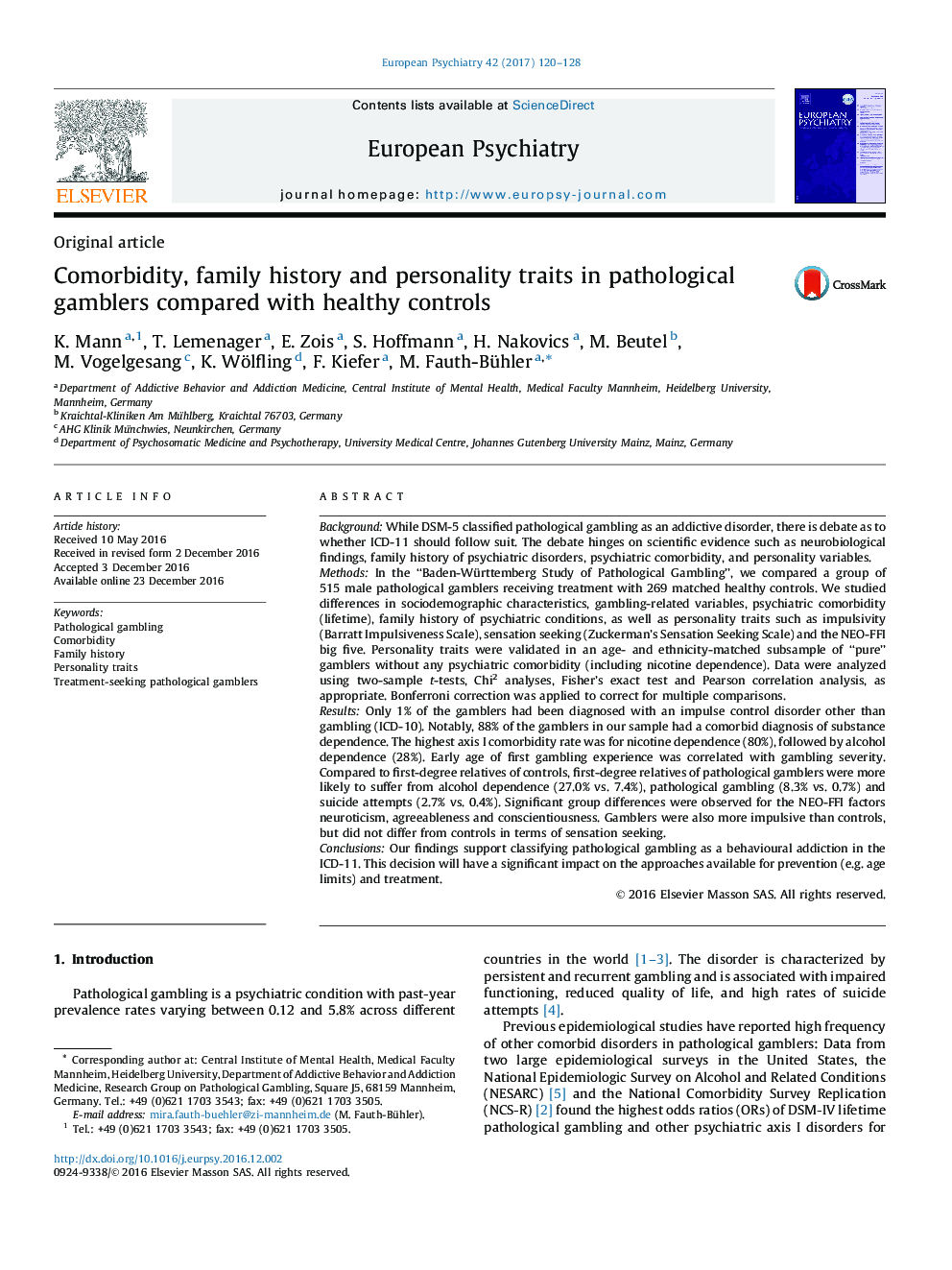| Article ID | Journal | Published Year | Pages | File Type |
|---|---|---|---|---|
| 5721452 | European Psychiatry | 2017 | 9 Pages |
BackgroundWhile DSM-5 classified pathological gambling as an addictive disorder, there is debate as to whether ICD-11 should follow suit. The debate hinges on scientific evidence such as neurobiological findings, family history of psychiatric disorders, psychiatric comorbidity, and personality variables.MethodsIn the “Baden-Württemberg Study of Pathological Gambling”, we compared a group of 515 male pathological gamblers receiving treatment with 269 matched healthy controls. We studied differences in sociodemographic characteristics, gambling-related variables, psychiatric comorbidity (lifetime), family history of psychiatric conditions, as well as personality traits such as impulsivity (Barratt Impulsiveness Scale), sensation seeking (Zuckerman's Sensation Seeking Scale) and the NEO-FFI big five. Personality traits were validated in an age- and ethnicity-matched subsample of “pure” gamblers without any psychiatric comorbidity (including nicotine dependence). Data were analyzed using two-sample t-tests, Chi2 analyses, Fisher's exact test and Pearson correlation analysis, as appropriate. Bonferroni correction was applied to correct for multiple comparisons.ResultsOnly 1% of the gamblers had been diagnosed with an impulse control disorder other than gambling (ICD-10). Notably, 88% of the gamblers in our sample had a comorbid diagnosis of substance dependence. The highest axis I comorbidity rate was for nicotine dependence (80%), followed by alcohol dependence (28%). Early age of first gambling experience was correlated with gambling severity. Compared to first-degree relatives of controls, first-degree relatives of pathological gamblers were more likely to suffer from alcohol dependence (27.0% vs. 7.4%), pathological gambling (8.3% vs. 0.7%) and suicide attempts (2.7% vs. 0.4%). Significant group differences were observed for the NEO-FFI factors neuroticism, agreeableness and conscientiousness. Gamblers were also more impulsive than controls, but did not differ from controls in terms of sensation seeking.ConclusionsOur findings support classifying pathological gambling as a behavioural addiction in the ICD-11. This decision will have a significant impact on the approaches available for prevention (e.g. age limits) and treatment.
